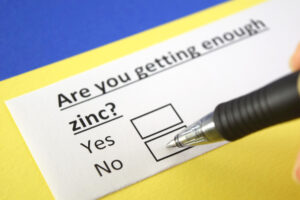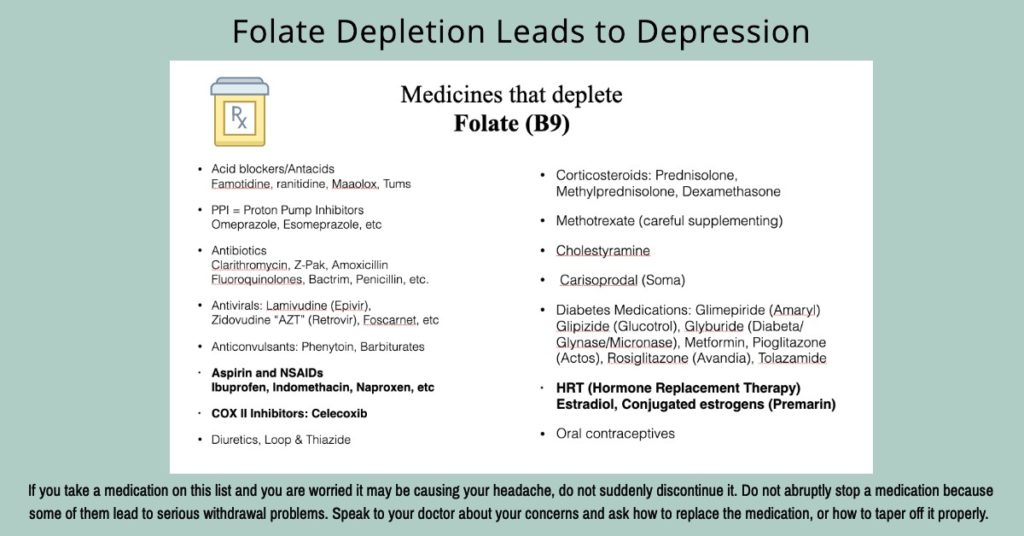What's On This Page?
ToggleThe focus of the blog today is on the #1 selling anti-convulsant drug in America, and it’s known chemically as gabapentin. One popular brand name for gabapentin is Neurontin. Some people take this prescription medicine even though they do not suffer from epilepsy because it seems to help other conditions like pain management, neuropathy, or insomnia. It is occasionally used in pre-op circumstances and given to patients to help reduce stress and induce relaxation right before surgery.
One method by which the drug works is to increase natural GABA concentrations in the brain and spinal cord. This is a primary mechanism of action, but it’s not the only way gabapentin works. No one completely understands all the ways it performs in the body, we just know enough to say it increases relaxation, reduces pain, and inhibits seizures to some degree.
Some off-label uses for gabapentin include anxiety, alcohol withdrawal (based on a JAMA article), and possibly even hot flashes.
As for pain management, it appears to work better than tricyclic antidepressants and can be taken in tandem with those medications. Furthermore, it is non-narcotic so people who cannot tolerate or take opiates have the option to try gabapentin.
Gabapentin is a favorite among prescribers because it offers many advantages over traditional anticonvulsants, benzodiazepines, and sedative-hypnotics. The dosage can be easily changed since it has a wide variety of strengths such as 100mg and 300mg and 400mg, and can be titrated to any dodge. We often see 3,600 mg as a maximum dose,
however, some situations require even more. The dosage is something that your practitioner can determine based on your condition and ability to metabolize the drug, and what your tolerability is.
How to Take Gabapentin
Since this medication is prescribed for various different conditions and to people of all ages, please follow the directions on your prescription bottle. If you have a question or concern, call the pharmacy that dispensed your medication, or the physician who prescribed it.
Gabapentin may be taken without regard to meals.
Timing of your medicine is important, especially if using the medication for its anticonvulsant effect. Seizure control requires prompt timing to avoid highs and lows. So if you are splitting your total daily dose into four different times of administration, for example, stick to the same time each day. For example, 7 am, noon, 4 or 5 pm, and finally at 10 or 11 pm. Try not to vary this too much from whatever schedule you set because your peaks and troughs will be different and you could have a breakthrough seizure!
Some people take gabapentin just for sleep. If you are using gabapentin for insomnia, take it about 30 to 60 minutes prior to bedtime each night. Do NOT combine it with other strong sedatives or alcohol, or any sleep aids (natural or pharmaceutical) that induce sleep because breathing will slow, or stop and that could be life-threatening.
If you have trouble swallowing the capsules, you can empty the contents of the capsule and mix it into applesauce, yogurt, pudding, or grape jelly, really whatever you like! The only time you can’t do that is if your formula is a long-acting or sustained-release, but most formulations of gabapentin are plain capsules and can be emptied and stirred into a food or beverage if desired. If you have any doubts or questions, call the pharmacist that filled your prescription and ask them.
If the intention is to stay on the medication for more than a few weeks, and you have trouble swallowing capsules, have the doctor phone in a prescription for a liquid solution or suspension. There are varying concentrations of liquid gabapentin available, some are even available at major retail pharmacies. In other cases, your local compounding can usually prepare a liquid suspension of gabapentin for you within a week or so, depending on the concentration needed.
As for dosing, be very careful and follow your label instructions, and do not take more than is recommended. Do not suddenly stop this medication. If weaning off is recommended by your prescriber, do so cautiously and slowly.
Gabapentin is a Drug Mugger
Gabapentin causes drug-nutrient depletions, meaning it can reduce the body’s levels of certain nutrients and that can lead to side effects. It’s not a bad thing, it just is. Medications have the ability to deplete or reduce nutrients from the body or interfere with how it works. Therefore extra intake of the lost nutrient is needed to restore levels.
Every drug causes drug-nutrient depletions, it’s a phenomenon I call the ‘drug mugging’ effect.
One of the most well-documented drug mugger effects is with statin cholesterol drugs. They reduce CoQ10 and restoring it is essential for cardiac and muscle function. Another is with oral contraceptives, they reduce B vitamins and selenium so restoration is critical or you could end up tired and hypothyroid. Antibiotics trash your probiotics! This leads to diarrhea, queasiness, and stomach aches. Antibiotics are huge drug muggers of probiotics!
Caution: Do NOT stop gabapentin without a proper taper and physician supervision. If you stop suddenly without proper supervision and slow
tapering, you could have a seizure. Just like with BENZODIAZEPINES, this is serious business, so do not ever just stop this drug without medical supervision and a slow taper. The body does become dependent on it, both physically and psychologically.
Knowing what nutrients your drug is stealing (ie the drug mugger effect) can help you solve side effects and that’s my primary goal today. Knowing what nutrients may be reduced due to a medicine you take can make you more comfortable, help you avoid unwanted side effects, and allow you to remain compliant and take the medication as your doctor ordered it.
I wrote a whole book to help people on this topic entitled, Drug Muggers which you can buy on AMAZON.
Gabapentin May Reduce Levels of The Following Nutrients
⚠️Please note the following caution nowhere am I suggesting that you stop your gabapentin. The list of nutrients below and their related deficiency symptoms may lead you to think that the medication is somehow bad for you and that is NOT what I am saying.
I am just informing you of the nutrient depletions so that you can supplement properly, and feel better while you take your medication. It’s really for educational purposes, and not intended as advice. You should have a conversation with your practitioner about what vitamin and mineral doses are right for you, as well as if you should even supplement or not.
I believe that by ‘marrying’ the nutrient with its medication, a person can have the best of both worlds. They can remain on their prescribed medication while minimizing side effects by restoring the depleted nutrients. Do not take any supplements or vitamins if you take gabapentin without first asking your doctor if it’s okay.
Also, just because a nutrient is listed as depleted below doesn’t mean it’s actually depleted for you. If your diet includes foods rich in vitamin A, for example, you do not even notice that depletion. If you take probiotics on a regular basis, you may not notice the B12 depletion because some B vitamins are made in the gut.
If your dosage of gabapentin is low, again, you may not even notice the depletion. So again, the following list of nutrients are just possible depletions. They don’t happen for everyone who takes gabapentin.
Generally speaking, the drug-nutrient depletion effect (“drug mugging” effect) is highly variable due to genetic polymorphisms, diet, lifestyle, and individual biochemistry. That said, the following nutrients have been shown to be possibly depleted by gabapentin:
1. Calcium
Gabapentin will somehow reduce calcium via the drug mugging effect. It may not be very noticeable at first because the body seeks homeostasis in the bloodstream and if low calcium is detected, the body will pull the calcium out of the bone and put it in the bloodstream where it can feed the nerves, muscles, and the heart. A blood level drawn for calcium will look normal because the body is leaching it from elsewhere to keep your electrical system functioning.
So over time, calcium deficiency becomes more and more profound in the bones (while blood levels remain normal) and then one day you are told that you have osteopenia or osteoporosis, or you get a bone fracture.
The changes on your bone density scan (DEXA) or a fracture is often the first sign of a calcium deficiency. But the calcium ‘leak’ has been going on for a long time, perhaps years. Another sign of calcium deficiency is cramping or spasms, or what feels like tetany. That’s worse than a cramp actually!
The cause of calcium deficiency varies and may have to do with gabapentin or other drug muggers (even coffee!), but it may in rare cases also have something to do with underlying parathyroid disease. This is not a common cause of calcium deficiency, but it’s common enough to mention here and one day I will elaborate on that condition. Finally, if you have had your parathyroid glands removed, or you have hypoparathyroidism, you may also suffer from calcium deficiency.
Supplementation of calcium while taking gabapentin may be right for you. If so, dosages around 500 to 600 mg per day might be enough, along with a diet rich in minerals. Taking excessive amounts of calcium isn’t a good idea. Do not take any supplements or vitamins if you take gabapentin without first asking your doctor if it’s okay.
2. Vitamin A
Vitamin A is most known for its beneficial effect on immunity and vision. With a reduction of vitamin A, one may experience trouble seeing in low light (termed “night blindness”), dry eyes, crusty morning eyes, damage to the cornea and retina, bitot spots (keratin in the whites of the eye), and higher susceptibility to infection. The severity of the eye problems correlates to the deficiency of A which is related to the length of duration of treatment.
In other words, the longer you take a drug mugger of A, or the higher the dose, the worse your vision might be. Contributing further to visual deficits are the genetic polymorphisms you have to activate beta carotene to vitamin A, dietary influence and incorporating the nutrient at the cellular level. If zinc or copper deficiency is also present in the body, visual acuity further decreases.
Another lesser-known benefit of “A” is for skin health, so long-term use of a drug mugger of vitamin A will lead to more skin irritation, eczema, and dermatitis.
Supplementation of vitamin A while taking gabapentin may be right for you. If so, dosages around 10,000 to 25,000 IU per day might be okay, along with a healthy. Taking excessive amounts of A or any fat-soluble nutrient is not a good idea. Do not take any supplements or vitamins if you take gabapentin without first asking your doctor if it’s okay.
3. Copper and Zinc
Deficiencies of these two minerals may occur with chronic use of gabapentin. Depletion will easily and almost always cause thyroid dysfunction (hypothyroidism specifically).
As an aside, I want you to know that zinc supplementation may tilt copper down. So many people supplement with zinc for some specific reason, whether that be for acne, or prostate concerns… and high doses (usually above 30 – 60mg per day) will lead to copper deficiency. The two minerals work together so don’t take excessive amounts of zinc for too long because zinc will tilt the copper too low.

The point of this aside is to let you know that while zinc is good, and critical for human health (and often depleted!) taking too much is not wise. One must strive for physiological balance, for optimal health, and try not to fool around with high doses of this mineral, or any other! Here’s more INFO.
Drug mugging of copper and zinc occurs with the use of gabapentin (as well as with antacids/acid blocker use), and the symptoms include symptoms of “hypothyroidism” like always feeling cold, tired, and looking pale. Further, there could be brain fog, insomnia, muscle soreness, leg cramps, and frequent infections. Another overlooked, misdiagnosed tell-tale sign of ZINC deficiency is slow wound healing! You’ll get a cut or wound and it will take forever to heal! Chelated zinc is ideal because it is gentle on the stomach and highly bioavailable.
Supplementation of zinc and/or copper while taking gabapentin may be right for you. It’s hard to say from here and I cannot advise If so, dosages vary and you could try something as simple as a trace mineral supplement or electrolyte drink. Taking excessive amounts of copper isn’t a good idea and you should read my other article My 2 Cents About Copper Worth a Million Bucks.
Do not take any supplements or vitamins if you take gabapentin without first asking your doctor if it’s okay.
4. B Complex
Within the “B complex” family which consists of many B vitamins, we see strong drug mugging of vitamin B12, folate and biotin. A reduction in these nutrients will cause anemia and obstacles in the methylation process, which leads to higher homocysteine. A rise in the latter will increase the risk of a heart attack. So the restoration of B vitamins through diet (and/or supplementation) may be in order.
Many women who take gabapentin may seek to become pregnant, and if that’s you please have your levels of folate evaluated with a blood test to make sure they are in the normal range. The reason is that folate deficiency is linked to birth defects, so you want to enter into a pregnancy with adequate levels of folate.
Reduced folate correlates to depression and mood instability. Here is a graphic I made to show you all the different medications that have the potential to deplete folate.

VERY IMPORTANT: Supplementing with methylated folate (ie “5-MTHF” or “methylfolate”) as opposed to synthetic plain “folic acid” is preferred by practitioners in-the-know because the former is biologically active.
As for B12 and biotin, these are made in the gut thanks to your probiotics. We know that deficiencies of these nutrients can lead to neuropathy, cardiac rhythm problems, and mental/emotional instability. The difficulty in proving these nutrient deficiencies is that blood testing is pretty unreliable. You have to consider the person and his/her signs and symptoms.
Oftentimes there is a slow and sneaky mishmash of symptoms that go under the radar… things like brittle nails, hair loss, thinning hair, and little skin things! The assumption is “I’m getting older!” But not necessarily, the assortment of vitamin B-related deficiencies will begin to show up as nerve pain somewhere like your foot, or elbow, and then you’ll see more and more episodes of memory loss, confusion, and forgetfulness. These are things that other experts chalk up to aging, but I don’t. The B’s work in your mitochondria to help generate energy so I highly recommend my brand, it’s methylated and biologically active! You can learn more about Mito B Complex HERE
Do not take any supplements or vitamins if you take gabapentin without first asking your doctor if it’s okay.
Supplementation of B complex vitamins while taking gabapentin may be right for you. Taking 1 capsule a day may be enough if you’re taking a methylated formula that provides biologically active B vitamins (ie P5P instead of pyridoxine, and 5-MTHF instead of folic acid).
5. Vitamin D
The evidence for the drug mugging of “D” by gabapentin is not very strong or consistent, but there is enough documentation for me to give it an honorable mention in my blog. As you know, vitamin D pushes calcium out of the bloodstream and puts it back into the bone. Scroll up and read about calcium and you can see that taking D with calcium might be okay for some of you with diagnosed bone brittleness.* It’s just hard to say from here.
Research has shown that long-term (greater than a year) intake of anticonvulsants like gabapentin interferes with vitamin D activity and/or activation of D to calcitriol. I’d say that sunlight is a good idea if it doesn’t trigger your seizure, and possibly low-dose D supplementation of 1000 IU daily or whatever your doctor suggests for you based upon your personal blood levels.
Supplementation of vitamin D (with or without calcium) while taking gabapentin may be right for some of you. You can get blood levels drawn to see what your D levels are. Taking excessive amounts of vitamin D or any fat-soluble antioxidant isn’t a good idea. Dosages vary greatly for cholecalciferol (vitamin D or sometimes called “D3”) and along the lines of 1,000 – 5,000 IU per day might be okay. I have a vegan vitamin D3 in capsules available HERE if you’re interested.
Measure blood levels consistently to make sure you’re maintaining healthy (vs excessive) amounts. Serum values above 50 or 60 are considered ideal.
Summary
Gabapentin has an impact on bone metabolism and vision due to the well-documented depletion of the nutrients and minerals listed above. If taking this medication, supplementation with some or all of the aforementioned items may be useful for you. Talk to your physician about what’s right for you. Bear in mind that the “drug mugging” effect o gabapentin varies from person to person and has to do with dose, duration of use, and individual factors.
Do not stop taking gabapentin suddenly. Do not take any supplements or vitamins if you take gabapentin without first asking your doctor if it’s okay.

Suzy Cohen, has been a licensed pharmacist for over 30 years and believes the best approach to chronic illness is a combination of natural medicine and conventional. She founded her own dietary supplement company specializing in custom-formulas, some of which have patents. With a special focus on functional medicine, thyroid health and drug nutrient depletion, Suzy is the author of several related books including Thyroid Healthy, Drug Muggers, Diabetes Without Drugs, and a nationally syndicated column.


